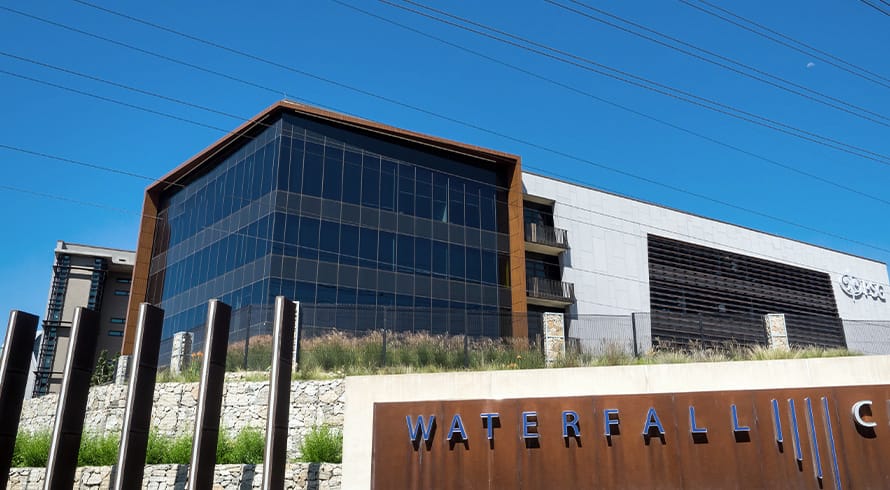Rail privatisation – Industry updates and developments
At a glance
- Recent months have seen significant movement in South Africa's rail sector, with parallel developments around the early stages of rail privatisation and the domestication of the Luxembourg Rail Protocol.
- The Government recently announced the first 11 train operating companies (TOCs), which are now negotiating with the Transnet Rail Infrastructure Manager regarding network access.
- The outcome of the first access agreements will be critical in determining whether the new TOCs can operate on a commercially viable basis and whether financiers will have the confidence to commit capital to rolling stock and related infrastructure.
The Government recently announced the first 11 train operating companies (TOCs), which are now negotiating with the Transnet Rail Infrastructure Manager (TRIM) regarding network access. Each TOC will need to secure operating licences and negotiate access terms with the TRIM.
The TRIM has published the precedent draft access agreement to be concluded between it and the TOCs. These agreements will be critical in establishing the balance between access rights, obligations, warranties and indemnities and tariffs. The first access agreements concluded will provide a template for future entrants and the success of these initial allocations will determine whether the privatisation process can create a competitive yet sustainable rail environment. The conclusion of these initial arrangements will also set the parameters for future negotiations regarding the condition of Transnet’s network – which is a key issue facing all TOCs and funders.
Financing needs and funding challenges
Rail is capital intensive and the new TOCs will require significant funding to acquire locomotives and rolling stock. International mechanisms such as the Luxembourg Protocol should help open up access to finance, but private funders are likely to shoulder most of the responsibility as direct public funding is improbable.
Financiers should start considering several critical issues to assessing TOC projects, including the jurisdiction of the TOC or borrower, the process for the international registration of the interests in the financed assets and the provisions of the access agreements, particularly in relation to security of tenure over the investment period.
Potential financiers should also start preparing for domestication of the Luxembourg Protocol and enforceability of security, as outlined below.
Luxembourg Protocol updates
In parallel with the negotiation of the rail access agreements, one of the key developments has been the ratification of the Luxembourg Protocol, effective 1 May 2025, and the imminent initiation of its domestication into South African law. The Luxembourg Protocol creates an international system for registering security interests in railway assets and extends the Cape Town Convention on International Interests in Mobile Equipment to railway rolling stock.
The legislature is still required to align the Luxembourg Protocol with domestic legislation, including targeted amendments to the Companies Act 71 of 2008, where inconsistencies exist. While domestication has not yet occurred, financiers and TOCs can already begin preparing to leverage the Luxembourg Protocol, which offers improved asset-based financing and cross-border recognition of security rights. This will necessitate the inclusion of specific provisions in funding agreements to ensure application of the Luxembourg Protocol and to account for registration of rolling stock on the International Rail Registry using Unique Rail Vehicle Identification System (URVIS) numbers.
In another very positive development, in August 2025 the Export Credit Insurance Corporation of South Africa (ECIC) announced that it would apply a risk premium discount of up to 20% where it underwrites rolling stock financings in the state of the debtor/lessee when the Luxembourg Protocol is in force, subject to ECIC minimum local South African content rules, compliance with the Luxembourg Protocol and other underwriting conditions.
Wider industry impact
Other industry players should also proactively take note of their existing agreements with Transnet which may be affected by the Network Statement, requiring a review of:
Tariff adjustment clauses to assess whether they remain aligned with regulated access charges.
Regulatory change provisions and the implication on the contractual provisions.
Conclusion
Taken together, the Luxembourg Protocol, the announcement of the first TOCs and the negotiation and conclusion of the first rail access agreements with the TRIM signal a profound shift in the South African rail landscape.
The outcome of the first access agreements will be critical in determining whether the new TOCs can operate on a commercially viable basis and whether financiers will have the confidence to commit capital to rolling stock and related infrastructure.
For funders, the key issues will be the enforceability of security under the Luxembourg Protocol and the strength of the access agreements that underpin TOCs’ revenue streams. For TOCs, the challenge lies in balancing evolving regulatory requirements, operational realities particularly in relation to the condition of the network and infrastructure limitations, as well as financing constraints.
The information and material published on this website is provided for general purposes only and does not constitute legal advice. We make every effort to ensure that the content is updated regularly and to offer the most current and accurate information. Please consult one of our lawyers on any specific legal problem or matter. We accept no responsibility for any loss or damage, whether direct or consequential, which may arise from reliance on the information contained in these pages. Please refer to our full terms and conditions. Copyright © 2026 Cliffe Dekker Hofmeyr. All rights reserved. For permission to reproduce an article or publication, please contact us cliffedekkerhofmeyr@cdhlegal.com.
Subscribe
We support our clients’ strategic and operational needs by offering innovative, integrated and high quality thought leadership. To stay up to date on the latest legal developments that may potentially impact your business, subscribe to our alerts, seminar and webinar invitations.
Subscribe




